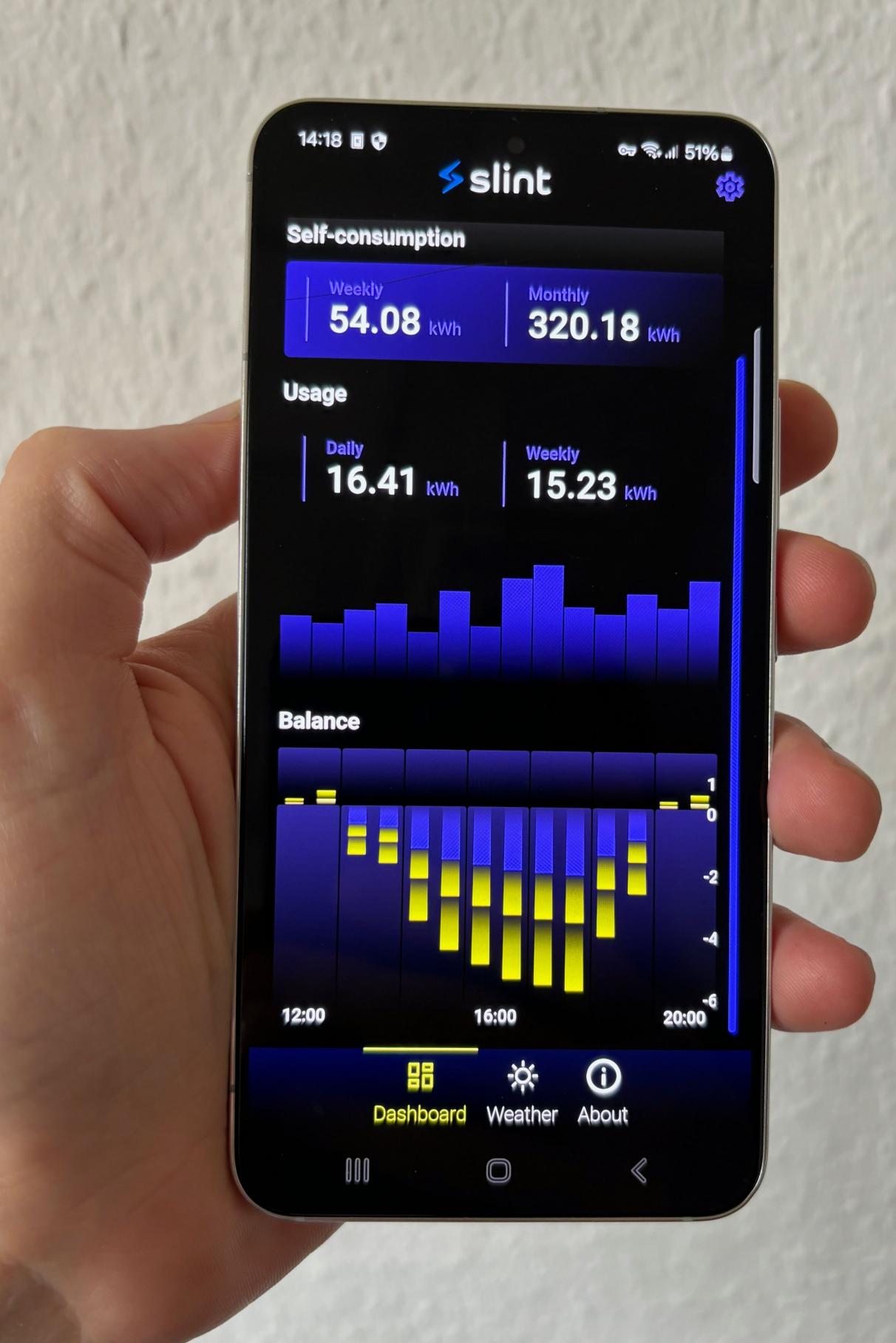-
Karolina Bryndza writes about her journey enhancing a Python script for a particle simulation, from handling 400 to aiming for 4 million particles. The article dives into the challenges of simulation optimization, the concept of emergence in complex systems, and the comparative performance of programming languages. It outlines the path from an initial inefficient script to future improvements and optimizations aimed at achieving real-time rendering of a million particles.
Main Points- Introduction to Particle Life and its emergent behavior.Karolina Bryndza explored the concept of Particle Life, focusing on the emergent properties of simple rules applied on a large scale.
- Explanation of particle system implementation and optimization challenges.The article provides a detailed explanation of how the particle system is implemented in Python and discusses the challenges of optimizing the code.
- Benchmarking performance of Python, C, JavaScript, and WebAssembly.Through benchmarking comparisons, the inefficiency of Python for large-scale arithmetic operations is illustrated, along with the surprising efficiency of JavaScript.
- Future directions for optimizing and scaling the particle simulation.The article hints at future explorations into JavaScript implementation and optimization techniques such as spatial partitioning and utilization of WebGPU for rendering a million particles.
122004763 -
Slint 1.5, announced by SixtyFPS GmbH, adds prominent features such as official Android support, an improved Live-Preview, and the beginning of Python support in a new release. These updates aim to extend Slint’s functionality, now allowing Rust apps to deploy on Android and introducing an API for Python. The release also highlights bug fixes and enhancements thanks to community contributions.
Main Points- Android SupportSlint 1.5 introduces official Android support, allowing Rust-built apps to be deployed on Android devices.
- Improved Live-PreviewThe release brings an improved Live-Preview functionality for quicker iteration when developing GUI applications.
- Python SupportBegins the introduction of Python support with an alpha-stage API, promoting broader language support for Slint.
122004763 -
The article introduces the concept of Function Calling with Hermes-2-Pro-Mistral-7B, a tool designed to simplify the process of defining functions and tools for use with language model APIs. Through detailed examples, it demonstrates how this tool can be utilized to enhance the efficiency and capabilities of language models in executing specific, predefined functions.
Main Points- Function Calling CapabilitiesFirst we will define some functions/tools which the LLM will have access to. Here I use langchain to convert the Python functions into the tools format used by OpenAI. It’s much faster than writing those JSON objects by hand. Note that Hermes-2-Pro-Mistral-7B also uses this same format!
122004763 -
Slint 1.5 introduces Android support, enhanced Live-Preview functionality, and the beginnings of Python support. This release is significant for Rust developers interested in Android development and Python developers exploring new GUI possibilities. Contributions have led to bug fixes and new APIs, with the update maintaining backwards compatibility.
Main Points- Release of Slint 1.5Slint 1.5 was released, offering new features including Android deployment, improved Live-Preview, and the beginning of Python support, while maintaining full backwards compatibility.
- Android deployment with RustDevelopment for Android is now available within Slint, enabling Rust developers to create Android applications.
- Python support introducedIntroduction of an alpha stage API for Python, expanding Slint's accessibility to a wider range of developers.
122004763
We can't find the internet
Attempting to reconnect
Something went wrong!
Hang in there while we get back on track

Tags
see all- Technology
- AI
- Open Source
- programming
- AI and Machine Learning
- Elixir
- Artificial Intelligence
- philosophy
- Personal Growth
- Rust
- business
- social change
- software development
- Python
- machine learning
- innovation
- Linux
- DIY
- collaboration
- Nominatim
- architecture
- Entertainment
- performance improvement
- performance
- education
- Android
- PostgreSQL
- Docker
- Deadspin
- ActivityPub
- Slint
- Developer Experience
- NixOS
- SQL
- Drone
- neural networks
- simulation
- Erlang
- Journalism
- Entrepreneurship
- LLM
- scalability
- Concurrency
- fault tolerance
- immutable URLs
- Nix
- productivity
- WebAssembly
- Database
- Generative AI
- Security
- Home Lab
- deployment
- ESP32
- Language Models
- automation
- Data Visualization
- Markets
- Networking
- Ecto
- computing
- BEAM
- metal recovery
- Quantum Computing
- Robotics
- Web 2.0
- financial wellbeing
- harsh environments
- Miniaturization
- eclipse safety
- Public Health
- Web PKI
- Chess
- Transparency
- memory allocation
- safety
- brinespace
- Diversity
- brewer's yeast
- hardware review
- Cryptanalysis
- compiler backend
- anterior neostriatum
- compression
- Psychology
- Vulnerabilities
- computational complexity
- luxury
- Windows
- Natural Language Processing
- cloud native
- Legal Battle
- maintainability
- Lifestyle
- US Jobs Market
- Mike Benz
- dinosaurs
- Investment Strategy
- Xerox Park
- design
- Bletchley Park
- gaming
- Consumer Advice
- AI Democratization
- Economy
- Behavioral Biology
- Particles
- Parallelism
- brain abnormalities
- Query Optimization
- Church Growth
- Mathematics
- WWII
- problem-solving
- Cerebras Systems
- structured inference
- API
- LaVague
- mechanical design
- UNIX
- Certificate Transparency
- Ericsson
- Iman Gadzhi
- Thermodynamic Computing
- Nvidia
- electrolyte solutions
- setup simplicity
- Synchronization Primitives
- Wasmtime
- work-life balance
- Big Tech
- LLMs
- Twitch
- Tucker Carlson
- Garbage Collection
- machining
- Personal Reflection
- free speech
- Generosity
- Sports Stadiums
- Ash 3.0
- WebTransport
- celestial event
- ChatGPT
- processor-controlled
- computer graphics
- Actor model
- oral rehydration solution
- Missouri v. Biden
- password security
- Academic Freedom
- developer tools
- capitalism
- compilation
- total solar eclipse
- Performance Engineering
- Effective Methods
- 3D printing
- Wi-Fi Control
- hardware-controlled
- S&P 500
- Telemetry
- Encoding
- Theology
- First Amendment
- ISO GQL
- Web Monitoring
- Data Compression
- development environment management
- intelligence agencies
- Satire
- Divine Healing
- NSA
- WSE-3
- corporate media
- YouTube
- Project Management
- Sunlight
- basal ganglia
- constraints
- Online Learning
- Mobile App Development
- Medical Technology
- teamwork
- Server Management
- High-Performance Computing
- aviation
- Hugo Barra
- processes
- GUI Toolkit
- Foreign Data Wrapper
- Debugging
- spiritual experience
- indie game development
- kernel exploitation
- note-taking
- Cost-saving
- biosorption
- shuffle
- Probabilistic Machine Learning
- Economic Trends
- Media Criticism
- CMOS integrated circuits
- GPU security
- Technology Criticism
- health benefits
- Upptime
- Flutter
- Jensen Huang
- copyright
- Logging
- Memory Tagging Extension
- streaming service
- undecidability
- Enigma
- Speculative Execution
- remote work
- Coding
- Social Responsibility
- Corporate Profits
- Adm. Hyman G. Rickover
- Cipher
- Stable Video 3D
- AI Chip
- Nostr
- boot sequence
- APIs
- Pixel 8
- management
- register allocation
- Jordan Peterson
- Non-Transformer Models
- NewsGuard
- Computer Systems Research
- Content Creation
- system administration
- navy
- Software Support
- nuclear submarine
- Veeps
- Elisp
- StashPad Docs
- Truth
- Pentecostal Movement
- Categorical Thinking
- Deglobalization
- live sports
- Annual Letter
- cholera
- GitHub Actions
- Vaccine Mandates
- Flox
- devops
- Containerization
- E-graphs
- NP class
- Data Contamination
- Function Calling
- table formatting
- treatment
- Internet Iron Curtain
- Extropic
- AR
- Ovid
- development
- Federated System
- National Science Foundation
- Operating Systems
- functional programming
- Cypher
- JIT Compiler
- community discourse
- virtual environment
- Nostalgia
- RISC
- time management
- WebRTC
- Microsoft Research
- CIA
- AMD Graphics Cards
- Murthy v. Missouri
- superoptimization
- Geocoding
- GUI
- package manager
- Chips
- Evangelism
- low-cost project
- Wikipedia
- mammals
- communication
- Standards
- library
- OpenAI
- Selenium
- weight loss
- workplace culture
- Cranelift
- diagnosis
- pattern-matching
- troubleshooting
- Handheld Devices
- Circuit Digest
- Statistical Analysis
- AppSignal
- Parallel Computing
- titanosaurs
- spy agencies
- Meta
- The New York Times
- Torsion Springs
- Deep Packet Inspection
- leadership
- Growth
- OpenStreetMap
- Zed
- Ollama
- Let's Encrypt
- Richard Stallman
- GPU Clusters
- life advice
- Garnet
- software failure
- COVID-19
- LiveView
- Turing Machines
- federated models
- operating system
- GPUI
- Long-Polling
- text renderer
- software
- flash memory
- message passing
- AI-driven development
- Genetics
- community building
- schema migration
- cache-store
- Live-Preview
- evaluation
- BSD
- real-time communication
- software engineering
- video games
- hoaxes
- Church-Turing Thesis
- Algorithm
- Human Behavior
- workflows
- conditional
- Log-Normal Distribution
- CRDT
- AI Supercomputers
- Tablex
- FBI
- Garage Door Repair
- TypeScript
- Technology Trends
- Software Release
- pcase
- e-waste management
- N-channel diamond MOSFET
- Hollywood
- Lockdowns
- reptiles
- coding environment
- asynchronous communication
- Emacs
- Uppttime
- biometrics
- Financial Woes
- Blackwell
- 3D generation
- Learning Curve
- computational models
- Structured Logging
- Berkeley
- Server-Sent Events
- Race Conditions
- The Jet Business
- misinformation
- Stashpad
- Customization
- bitfield
- software critique
- Stability AI
- reinforcement learning
- VIBES
- immersive technology
- UI development
- Fingerprinting
- In-Context Learning
- scaling
- SIMA
- Regression Analysis
- Techno-Optimism
- Algorithm Design
- AT&T
- AI Acceleration
- Domain Modeling
- RP2040
- incident commander
- Personal Pronouns
- Ultrasound
- OpenVPN
- diamond electronics
- Hardware Selection
- theoretical computer science
- Notifications
- dehydration
- execution plan
- CVE-2023-6241
- animal behavior
- Google Docs alternative
- macOS
- Patience
- developmental language disorder
- Culture
- Johnny Depp
- hash table
- Sports
- browser automation
- Vision Pro
- nuclear navy
- authentication
- Database Innovation
- knowledge sharing
- Technology History
- virtual reality
- Xerox PARC
- UI/UX Design
- Transition
- WebSockets
- VS Code
- Computer Science
- cryptography
- .NET
- Daytona
- Android security
- Optimization
- PRQL
- Servers
- media bias
- Neovim
- VPN
- code-generation
- Design Systems
- censorship
- user code execution
- Capabilities
- Queries
- game design
- randomness
- x86
- Wafer Scale Engine 3
- lawsuit
- Source Code
- AI agent
- private jet
- PCB design
- Redis
- graph theory
- system design
- Abundance
- Cybersecurity
- sustainable technology
- Tools Format
- Phoenix
- system efficiency
- MEMS
- Decision Table
- Alan Kay
- Public Image
- Management Disputes
- computer vision
- Graph Database
- cond*
- Infrastructure
- Encyclopedia
- VR
- ARPA
- web development
- Apple
- Hermes-2-Pro-Mistral-7B
- DuckDB
- Unison
- disinformation
- sauropod
- Computability
- Feature Learning

